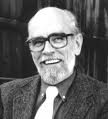April is National Poetry Month, so in addition to “Waving Goodbye” by Gerald Stern, you get bonus a bonus poem this month (which is particularly warranted since I’ve been remiss in sending out the Poem of the Month on a regular basis lately).
It has been a very busy month for us, and we have had the joy of celebrating, among other things, my parent’s anniversary and 7 family birthdays (including my daughters, and my own today).
I’ve begun reminiscing a lot about what birthdays meant to me as a child, but also thinking about what they mean to me now as my own children grow older. My daughter Emma just turned 9 last week (with my son Alex reaching the “13” milestone a month ago), and it is cliché but so very true for every parent out there that in the blink of an eye, it seems, our small infants have grown up overnight, developed personalities, quirks, and lovely natures that we don’t seem to have much control over any more. We raise them in the best possible way we know how, and then comes the moment when they cross that invisible threshold and cease to be a little “us” and are suddenly their own little “them.” It is a brilliant, humbling moment, and is usually only recognized in hindsight. I can only imagine that it must have been exactly like this for our own parents years and years ago…
Yet that moment also holds hope – hope for their future – a future (as Miller Williams’ poem points out) that we as adults will never be able to fully see. It doesn’t exist yet, but is the expression of everything we hope and dream our children’s world will be one day.
I thought I’d turn to two poems this month to celebrate the dichotomy of birthdays – the helplessness of watching our children grow older, and the possibilities embodied in the year(s) ahead.
Miller Williams
(1925 – )
Of History and Hope
We have memorized America,
how it was born and who we have been and where.
In ceremonies and silence we say the words,
telling the stories, singing the old songs.
We like the places they take us. Mostly we do.
The great and all the anonymous dead are there.
We know the sound of all the sounds we brought.
The rich taste of it is on our tongues.
But where are we going to be, and why, and who?
The disenfranchised dead want to know.
We mean to be the people we meant to be,
to keep on going where we meant to go.
But how do we fashion the future? Who can say how
except in the minds of those who will call it Now?
The children. The children. And how does our garden grow?
With waving hands—oh, rarely in a row—
and flowering faces. And brambles, that we can no longer allow.
Who were many people coming together
cannot become one people falling apart.
Who dreamed for every child an even chance
cannot let luck alone turn doorknobs or not.
Whose law was never so much of the hand as the head
cannot let chaos make its way to the heart.
Who have seen learning struggle from teacher to child
cannot let ignorance spread itself like rot.
We know what we have done and what we have said,
and how we have grown, degree by slow degree,
believing ourselves toward all we have tried to become—
just and compassionate, equal, able, and free.
All this in the hands of children, eyes already set
on a land we never can visit—it isn’t there yet—
but looking through their eyes, we can see
what our long gift to them may come to be.
If we can truly remember, they will not forget.





